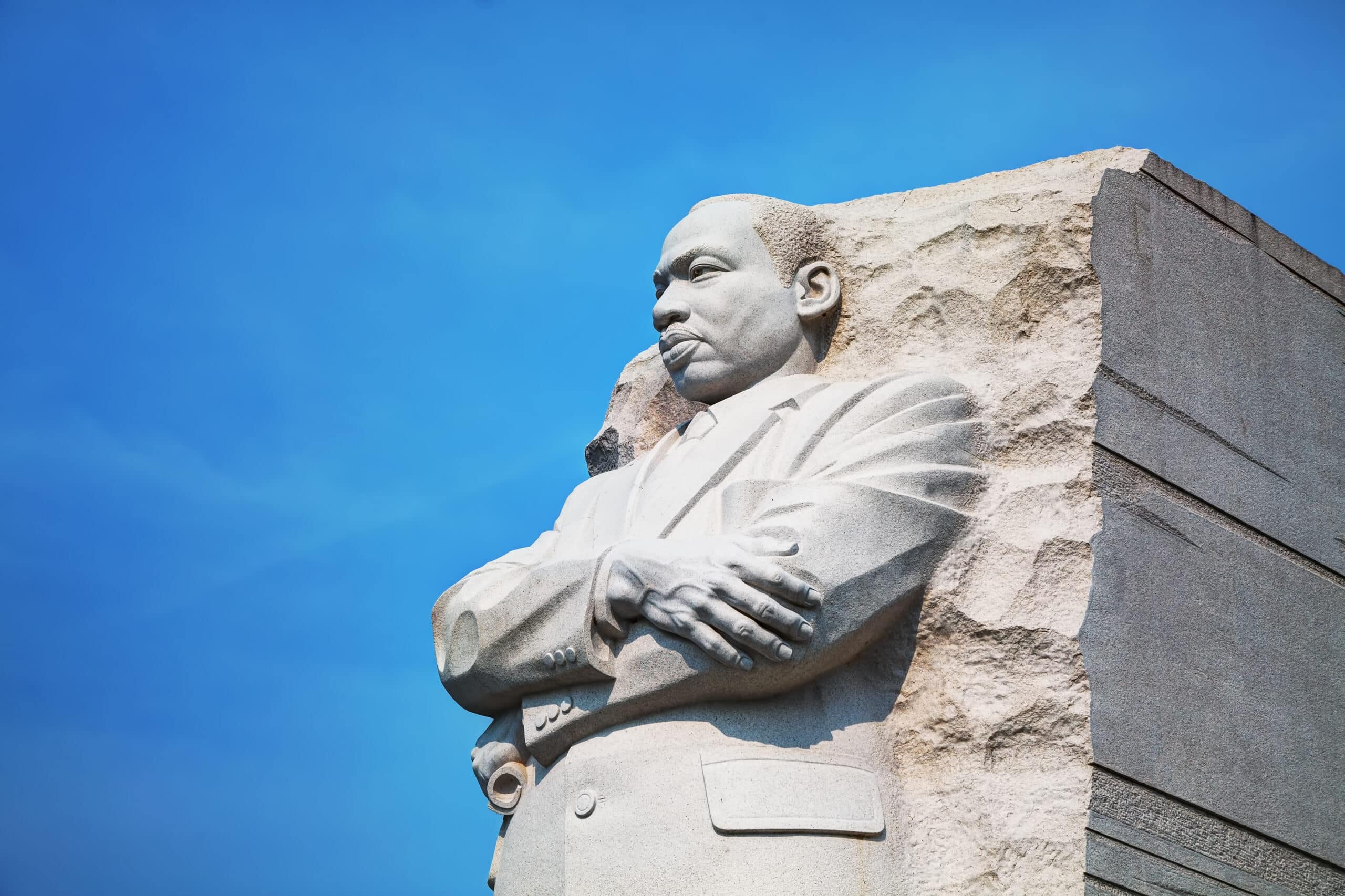Dr. Martin Luther King, Jr. was a force for good in the world at a time when our society was incredibly divided and polarized. Dr. King believed we ought to set aside our differences and judge people by the content of their character, and not the color of their skin. Many were opposed to this idea at the time, but he stood by his belief that we were better off united as one. As we look back on Dr. King’s dream and vision for America, Sherita Haigler, United Way’s vice president of diversity, equity and inclusion, assesses how far we’ve come as a society, our need to continue to grow as it relates to DE&I and United Way’s role in that effort.
What do you think is the key to us having more unity in our society and realizing Dr. King’s dream of more people treating each other with respect despite cultural, ethnic, or ideological differences?
We don’t always see things the same way, but if we could show appreciation for each other’s views and really look to understand the other person, we can make progress.
We should also have an understanding of how our views impact other people. We have to ask ourselves – do my viewpoints affect someone else’s quality of life in a negative way? And thus, make sure that what actions we’re taking as far as how we’re voting, or what policies we’re setting can be inclusive for everyone because that’s what Dr. King wanted. He wanted equality for all, he wanted social justice for all, but if we have systems in place that are not holding true to that, we have to figure out what role we play in dismantling those injustices and creating something new that will be more inclusive.
How can we use the past as a guide in teaching us ways we should and shouldn’t handle issues related to diversity, equity and inclusion?
We have to understand our past so that we don’t continue to make the same mistakes in the future. It is important to reconcile with it and realize that there are some beautiful parts of our past, but there are some ugly parts that have harmed our community and we have to tear down those things that negatively impacts communities of color and Black communities, specifically.
There are still some ideals and policies that hinder Black people from progressing in regards to social justice, economic advancement, housing, banking, and more. We have to assess these issues and reconcile with the fact that these things have happened and understand how they’re still impacting who we are today and then determine how we can move forward in changing those practices to make a better, more unified, and equitable community for all.
How do we overcome forces in our society that seek to keep us divided?
We have to understand and believe each other. So, when a particular group expresses issues such as economic disadvantage, housing discrimination, or whatever the case may be, it is up to us as a society to believe these individuals, and from there, figure out what we can do to help make things better for them. We have to listen to the individuals who are being impacted by barriers that are preventing them from accessing things that other people are privy to.
What can we all do individually to ensure we are doing our part in creating a world that is more welcoming, kind, and receptive of all people?
We have to conduct a self-assessment of ourselves. We have to understand how we are socialized to believe the things we believe. We have to assess some of the things our parents taught us, what we’ve read, and how television and media affects us and the way we perceive others. Then, we have to be aware of when our biases are creeping in and understand how to curb those beliefs that keeps us from seeing the humanity in others.
How do you think United Way is honoring Dr. King’s memory?
I think United Way honors Dr. King by the work we are doing in the community. We look at our communities and recognize some of the disparities. We see that there are gaps in things like economics, so we have our financial stability arm that helps the unbanked gain financial literacy and planning.
With various programs and resources like our 2-1-1 information and referral helpline, we are a connector for our community members when they need resources related to housing, food, transportation, and much more.
With these programs and resources, I think we are touching every space that we can possibly touch.
How important is it to embrace Dr. King’s vision for America all year and not just on his birthday observance?
We should strive to make Dr. King’s vision for our society a 365-day experience. We need to make sure everyone is having an equitable experience in our community and that social justice is where it needs to be. Diversity, equity and inclusion in regards to finances, housing, social justice, and more is important to making sure everyone has a sense of belonging and equality, and feel valued, seen and heard in every space they walk in.
Take action now:
- Learn more about how United Way is building a more equitable community.
- Read about how diversity, equity and inclusion has shaped our organization.
- Share this story with family and friends.
